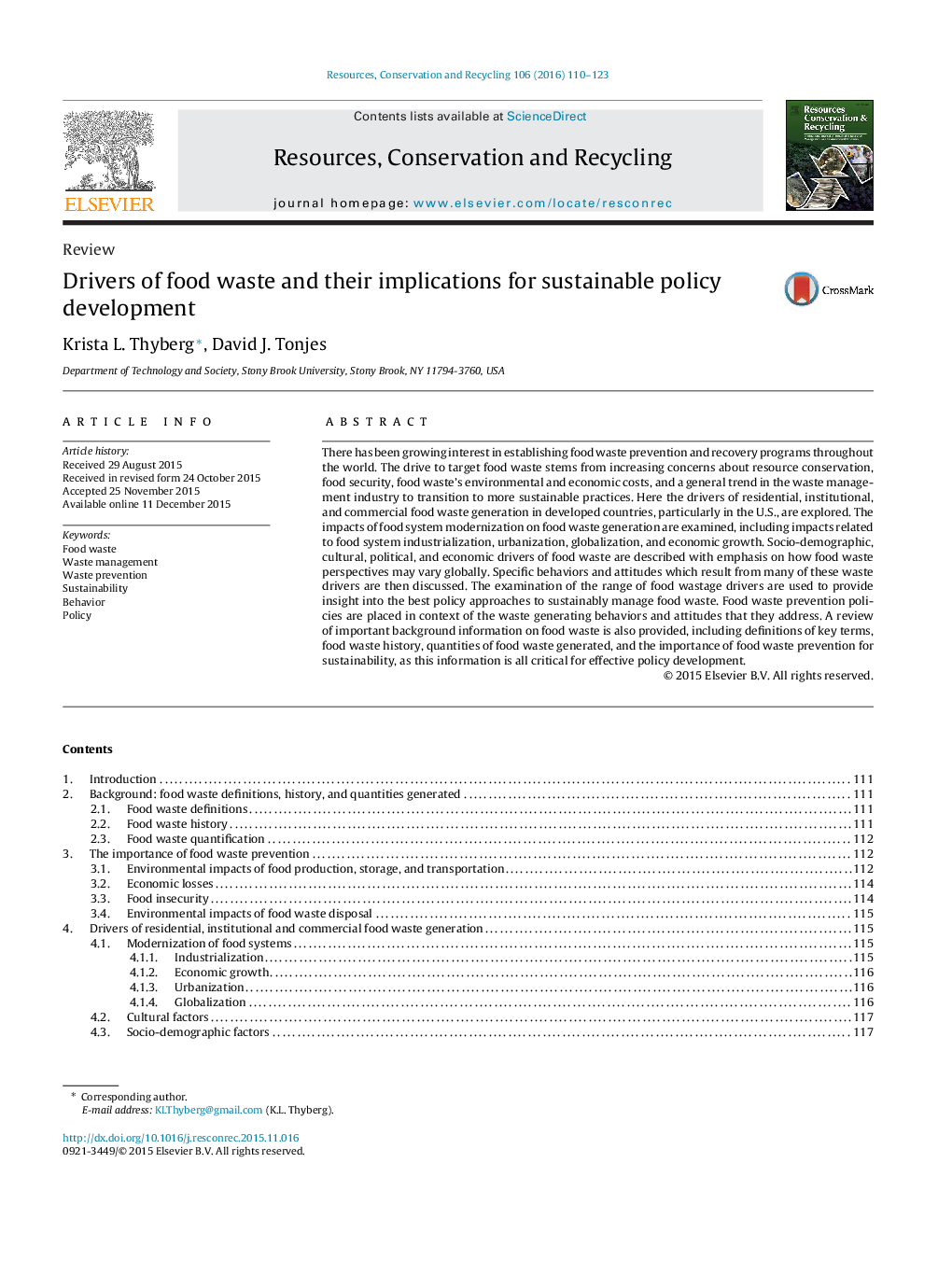| Article ID | Journal | Published Year | Pages | File Type |
|---|---|---|---|---|
| 1062763 | Resources, Conservation and Recycling | 2016 | 14 Pages |
•Food waste is a function of cultural, personal, political, geographic and economic drivers.•Food system industrialization, urbanization, globalization and economic growth affect wastage.•Food waste perspectives vary from person to person and from place to place.•Prevention policies should target the circumstances, behaviors and attitudes that lead to waste.•Prevention policies should encompass three key aspects: Values, Skills, and Logistics.
There has been growing interest in establishing food waste prevention and recovery programs throughout the world. The drive to target food waste stems from increasing concerns about resource conservation, food security, food waste's environmental and economic costs, and a general trend in the waste management industry to transition to more sustainable practices. Here the drivers of residential, institutional, and commercial food waste generation in developed countries, particularly in the U.S., are explored. The impacts of food system modernization on food waste generation are examined, including impacts related to food system industrialization, urbanization, globalization, and economic growth. Socio-demographic, cultural, political, and economic drivers of food waste are described with emphasis on how food waste perspectives may vary globally. Specific behaviors and attitudes which result from many of these waste drivers are then discussed. The examination of the range of food wastage drivers are used to provide insight into the best policy approaches to sustainably manage food waste. Food waste prevention policies are placed in context of the waste generating behaviors and attitudes that they address. A review of important background information on food waste is also provided, including definitions of key terms, food waste history, quantities of food waste generated, and the importance of food waste prevention for sustainability, as this information is all critical for effective policy development.
